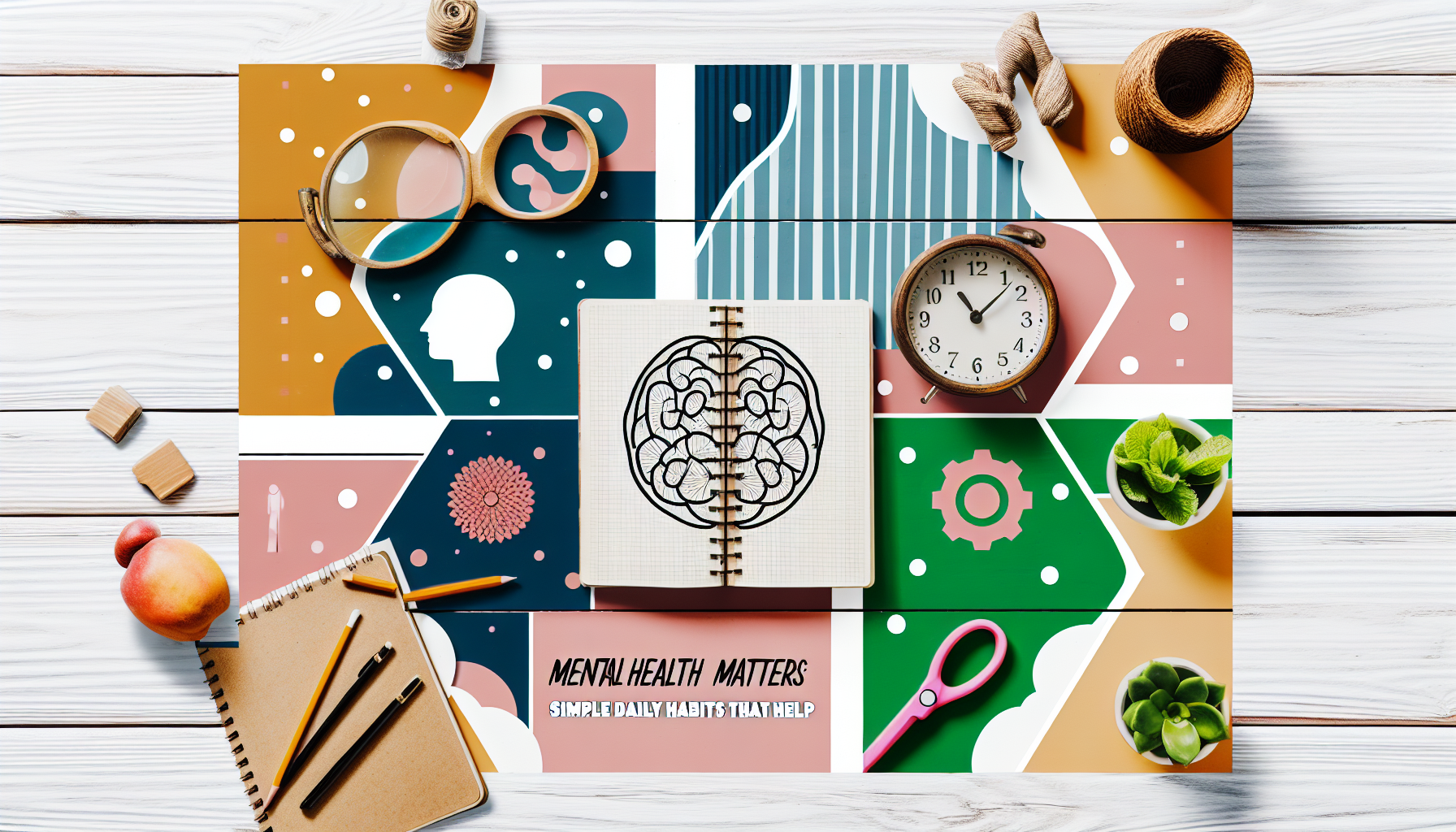Mental Health Matters: Simple Daily Habits That Help
Mental health is as crucial as physical health, and its importance cannot be overstated. In a world where stress and anxiety often run high, focusing on mental well-being can drastically improve quality of life. This blog post aims to explore simple daily habits that contribute significantly to better mental health. These habits are not only easy to integrate into your lifestyle but also immensely effective. So why is this topic so pertinent? Because mental health impacts every aspect of our lives—from our personal relationships to our professional performance. Let’s delve into mindful habits that promise a healthier mind.
The Power of Mindfulness and Meditation
Mindfulness is a psychological practice centered around being fully present in the moment. It involves acknowledging and accepting one’s feelings, thoughts, and bodily sensations without judgment. When incorporated into daily life, mindfulness can significantly enhance mental resilience and emotional well-being.
How to Practice Mindfulness
- Dedicate 10 minutes every morning to sit quietly and focus on your breathing.
- Engage in mindful eating by paying full attention to your meals without distractions.
- Practice mindful walking by being aware of every step and breath.
Aside from mindfulness, meditation is another practice that aids in reducing stress and improving concentration. These practices can collectively bring about a sense of calm and balance, benefiting both emotional and physical health.
Resources for Enhanced Practice
To get started with meditation, free resources are available online, including guided videos and apps. For more detailed guidance, check out our article on Mindfulness Meditation Techniques.
Physical Exercise and Its Impact
Physical exercise isn’t just for the body; it’s a powerful tool for mental health as well. Regular exercise can help alleviate symptoms of depression and anxiety while boosting overall mood. This is due to the release of endorphins, often termed “feel-good” hormones, which promote an enhanced sense of well-being.
Types of Physical Activities to Consider
- Cardio exercises like running or cycling, which improve cardiovascular health.
- Yoga, a practice that combines physical postures, breathing exercises, and meditation.
- Strength training, which not only builds muscle but also boosts confidence and self-esteem.
Integrating some form of exercise into your daily routine can be as simple as a 20-minute walk or an after-work gym session. Learn more about how exercise influences mental health in our dedicated blog post on The Connection Between Fitness and Mental Well-being.
The Importance of a Balanced Diet
Just like a car needs the right fuel to run efficiently, our brain requires nutrients to function properly. A balanced diet rich in vitamins, minerals, and antioxidants is essential for optimum mental health. Certain foods have been identified to provide specific mental health benefits.
Foods That Boost Mental Health
- Fatty fish rich in Omega-3 acids, like salmon or mackerel, support brain function.
- Nuts and seeds, which are high in antioxidants and help fight oxidative stress.
- Whole grains that regulate serotonin levels, improving mood stability.
Paying attention to your diet can dramatically affect your mental acuity, energy levels, and emotional balance. Discover more with our guide on Nutrition Tips for Better Mental Health.
Building and Maintaining Social Connections
Humans are inherently social beings, and strong relationships can significantly contribute to emotional well-being. Interaction with friends, family, and community provides a sense of belonging and emotional support. In times of stress, maintaining social connections can combat feelings of loneliness and isolation, which are major contributors to mental health challenges.
Ways to Enhance Social Well-being
- Schedule regular catch-ups with friends, even if they’re virtual hangouts.
- Volunteer for local community services to meet like-minded people.
- Join clubs or groups centered around your hobbies to develop new relationships.
It’s crucial to balance alone time and social activities to maintain mental health. Social connections can also provide a support network that fosters a sense of accountability and encouragement.
Key Takeaways
Simple daily habits like mindfulness, regular exercise, a balanced diet, and nurturing social connections can drastically improve your mental health. These practices are easy to integrate into your routine, yet their benefits are profound and long-lasting. By focusing on these areas, you can cultivate a healthier mind that stands resilient in the face of life’s challenges.
Engage with Us
We invite you to explore these habits and share your experiences in the comments section below. Your insights can be invaluable to others on a similar journey. Don’t forget to subscribe to our newsletter for more in-depth articles like this one. Share this post with friends who could benefit from these tips and be part of a community that prioritizes mental health. Remember, you’re not alone in this journey.


Leave a Comment